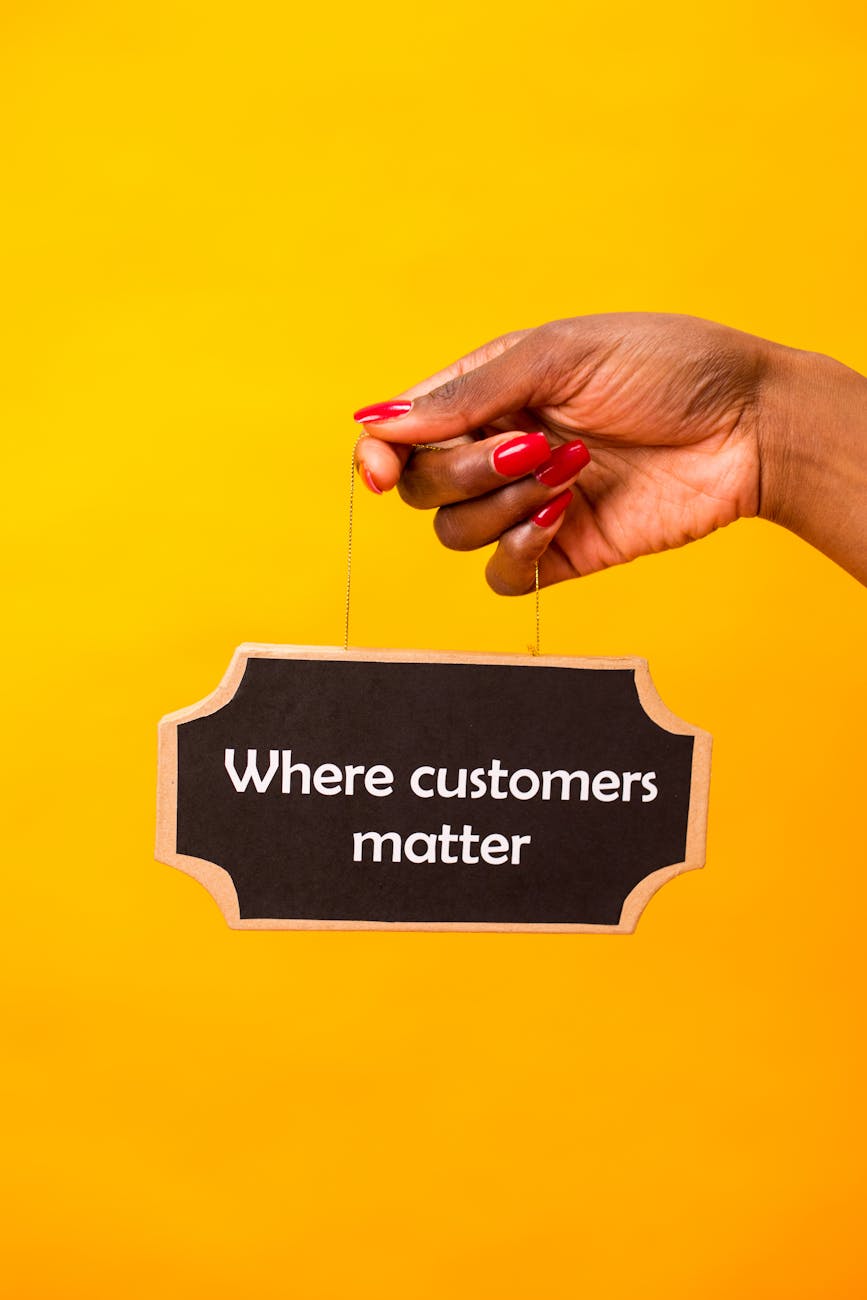Verified Software Companies Are the Cornerstone of Digital Trust in the UAE
> “Verified Software Companies” pledge that the applications they deliver meet the highest standards of security, performance, and compliance. In a fast‑moving digital economy where data breaches, regulatory fines, and operational downtime can cost firms millions, the choice of software is a risk‑management decision.
> The United Arab Emirates, with its Vision 2021 agenda and the Dubai Future Accelerators programme, has positioned itself as a hub for technology innovation. UAE regulations—from the Federal Law No. 2 of 2015 on Personal Data Protection to the UAE Data Protection Law (2023)—require businesses to procure software that complies with strict security, privacy, and interoperability standards. For residents, expats, and local firms alike, understanding which software providers are verified, accredited, and trusted is essential for sustainable growth.
—
Why UAE Firms Prioritize Verified Software Companies
1. Regulatory Compliance
– Federal Law No. 2 of 2015 (Personal Data Protection) obliges companies to protect personal data, process it lawfully, and store it within secure, compliant systems.
– Dubai Computer & Cybercrime Office (DCCO) publishes guidelines on licensing for IT services, emphasizing software that meets ISO/IEC 27001 certification.
2. Risk Mitigation
– Data‑breach incidents sketched in the 2023 UAE Cybersecurity Landscape Report show a 36 % increase in incidents affecting financial and health sectors.
– Verified software reduces exposure to vulnerabilities, lowering the probability of costly remediation and reputation damage.
3. Cost Efficiency
– Long‑term support contracts for verified vendors often include proactive maintenance, security patches, and compliance updates, effectively reducing unexpected expenditures.
– A 2022 Deloitte UAE study indicated that firms using fully audited software systems reported 15 % lower IT operational costs versus those that used ad‑hoc solutions.
4. Innovation and Integration
– Verified vendors tend to adhere to open standards, enabling easier integration with UAE’s growing ecosystem of smart city initiatives, such as the Dubai Smart City platform.
– They usually offer APIs that comply with the UAE government’s Unified Digital Signature requirement, simplifying cross‑government interactions.
—
The Role of UAE Regulatory Bodies in Software Verification
| Authority | Primary Function | Key Verification Output |
|———–|——————|————————-|
| UAE Telecommunication & Digital Government Regulatory Authority (TDRA) | Regulates ICT services, oversees electronic transactions. | Issuance of electronic verification certificates, endorsement of digital signatures. |
| Dubai Department of Economic Development (DED) | Grants business licenses, monitors compliance. | Verification of software licenses under the Dubai IT Service Management Certification (DITM). |
| Dubai Future Accelerators (DFA) – Dubai Smart City Authority | Accelerates smart city projects. | Sponsors joint technical reviews of software vendors for city‑wide deployments. |
| UAE Ministry of Economy (MOE) | Sets national IT policies, promotes digital economy. | Publishes annual UAE IT Sector Benchmark including lists of certified software solutions. |
| UAE Federal National Security Authority (FNSA) | Oversees national cyber‑security strategies. | Publishes the National Cybersecurity Framework (2019) that can be used as a baseline for evaluating software security postures. |
These bodies issue Certificates of Conformity or Attestation of Security that software vendors must obtain to operate within the UAE. Companies often display these documents as part of their compliance portfolio, and they serve as a guarantee to potential customers that the software meets the country’s rigorous standards.
—
Top Certified Software Companies in the UAE: A Must‑Have List
Below is a curated list of software providers that have established themselves as verified, trusted partners for UAE businesses. The list considers factors such as local presence, compliance with UAE regulations, global reputation, and demonstrated support for the UAE digital ecosystem.
1. SAP UAE & Global
– Core Offerings: ERP, HANA, SAP S/4HANA, SAP Cloud Platform, SAP SuccessFactors.
– UAE Accreditation: Holds ISO/IEC 27001 (2013) and ISO 22301 (Business Continuity).
– UAE Presence: Offices in Dubai and Abu Dhabi; local SAP Gold Partner SAP Technologies headquartered in Dubai.
– Industry Fit: High compliance for public sector projects, especially with federal government procurement guidelines.
2. Microsoft Gulf (Gulf Region)
– Core Offerings: Microsoft 365, Dynamics 365, Azure cloud services, Power Platform.
– UAE Accreditation: ISO certifications, FedRAMP for Azure and Gulf Cooperation Council (GCC) security alignment.
– UAE Presence: Regional office in Dubai; local partner SNE (Saudi National Enterprises) accredited across the Gulf.
– UAE Relevance: Azure’s compliance with the UAE’s Data Residency requirements, allowing data to stay within national borders.
3. Oracle UAE
– Core Offerings: Oracle Cloud Infrastructure, Oracle E‑Business, Oracle Fusion Middleware.
– UAE Accreditation: ISO/IEC 27001:2017, SOC 2 Type II, and UAE-specific ITPP (Information Technology Project Procurement) compliance.
– UAE Presence: Local offices in Dubai and Abu Dhabi, with dedicated Gulf division.
– UAE Fit: Widely used for Dubai Municipality projects, adhering to the municipality’s security standards.
4. IBM UAE / IBM Global
– Core Offerings: IBM Cloud Pak for Data, IBM Watson, IBM zSeries mainframes.
– UAE Accreditation: ISO 27001, ISO 22301, and Dubai Government Cloud (DGC) certified.
– UAE Presence: Offices in Dubai, Abu Dhabi, and Sharjah; local partner Perspecta Cloud.
– UAE Use‑Case: Secure data analytics for Dubai Insurance Authority and National Health Services.
5. Adobe Solutions UAE
– Core Offerings: Adobe Experience Cloud, Adobe Creative Cloud, Adobe Document Cloud.
– UAE Accreditation: ISO 27001, SOC 2 Type II, and GDPR‑compliant, meeting UAE Data Protection Law data handling principles.
– UAE Presence: Regional headquarters in Dubai; local reseller Gearcloud.
– Industry Fit: Frequent partner for UAE’s Dubai Media City and hospitality restaurants’ digital transformation.
6. Salesforce
– Core Offerings: Service Cloud, Sales Cloud, Marketing Cloud, Einstein AI.
– UAE Accreditation: ISO 27001, EU‑GDPR, and compliance with the UK Data Protection Act 2018 (as a EU‑aligned model).
– UAE Presence: Local office in Dubai; certified GDRP‑and‑Data‑Privacy partner Waelberg Consulting.
– Sector Usage: Saudi Arabia‑based DHL logistics heavily relies on Salesforce for CRM in the UAE sector of operations.
7. Accenture UAE
– Core Offerings: Digital transformation consulting, cloud services (AWS, Azure).
– UAE Accreditation: ISO 27001, Global Cybersecurity Framework compliance (NIST 800‑171), Dubai GSO certification.
– UAE Presence: Office in Dubai, Abu Dhabi.
– Application: Regularly selected by the Dubai Knowledge University for their strategic IT transformations.
8. Adobe Unity Technologies UAE
– Core Offerings: Advanced analytics, machine‑learning‑driven insights, digital marketing suites.
– UAE Accreditation: ISO 27001, SOC 3 (public reporting), UAE Data Residency clause.
– Use‑Cases: Used by The Emirates Group for customer engagement analytics.
—
How to Verify Authenticity and Compliance
1. Check Official Certifications and Accreditation
– ISO/IEC 27001: Continually update with the latest amendments to security controls.
– SOC 2 Type II or SOC 3: Validate ongoing operational controls over security, availability, processing integrity, confidentiality, and privacy.
– Local UAE Certifications:
– Dubai GSO (Government Services Office) License – certifies that the vendor’s solutions meet federal security standards.
– Federal Notification 73 – confirm that the vendor adheres to the UAE Data Protection Law 2023.
2. Seek Third‑Party Audits and Attestations
– Vendors should provide recent audit reports from recognized audit firms (e.g., Deloitte, PwC, KPMG).
– Look for management of scope within the audit that addresses the specific modules your company intends to use.
3. Verify Local Presence and Support
– An established regional office means you can access local technical support, comply with root‑ca digital certificates, and consult on local compliance requirements (firewall, monitoring).
– Contact the vendor’s UAE representative directly to ensure a direct line for queries regarding regulatory updates.
4. Assess Data Breach History and Response Plans
– Request public breach logs and verify that the vendor follows the UAE Cyber‑Incident Reporting procedure (within 72 hours).
– Check for a documented Incident Response Plan that references the UAE COBIT 5 framework.
5. Pilot and Proof‑of‑Concept (PoC) Agreements
– Deploy a PoC in a sandbox environment that mirrors your production setup.
– Ensure that the vendor’s software demonstrates compliance with local data residency and encryption standards without additional cost.
6. Leverage the UAE Digital Marketplace
– The Ministry of Economy’s Digital Service Marketplace (DSM) hosts licensed, verified software solutions.
– Vendors listed on the DSM have passed initial checks for compliance with UAE regulations.
—
Additional Resources for UAE Businesses
– MOE Digital Transformation Portal: Annual IT e‑services audit updates.
– Dubai Future Accelerators – Cybersecurity Academy: Training on evaluating software vendors.
– UAE Central Bank IT Guidelines: Specific to fintech and banking software compliance.
– UAE Federal Authority for Identity and Authentication (eIDNa (e‑Authentication Office)): Distributes the Digital Signature Standard key.
—
Conclusion: Trust Is Built on Verification
Choosing a software provider in the UAE is more than a technology decision—it is a strategic partnership that impacts compliance, security posture, and operational resilience. The government’s regulatory framework, reinforced by bodies such as TDRA, DED, and FNSA, ensures that only verified companies meet stringent standards.
For UAE residents, expats, and enterprises, the verified software providers listed above offer a blend of global best practices and local expertise, ready to support the region’s ambitious digital agenda. By following a rigorous verification process—checking certifications, local representation, audit reports, and data residency compliance—businesses can confidently deploy solutions that protect data, enable growth, and safeguard their reputations in an increasingly interconnected world.
—









